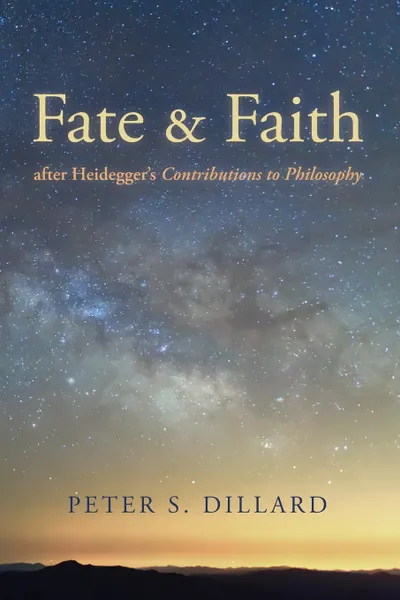Fate and Faith after Heidegger's Contributions to Philosophy
Автор: Peter S. Dillard
2020
Переплёт: Мягкая обложка, 188 страниц
Категория: Религия
ISBN: 9781532662331
Где найти книгу?
📒 In this groundbreaking new work, Dillard makes a powerful case for bringing contemporary Christian theology into critical dialogue with Martin Heidegger's Contributions to Philosophy (Of the Event).
Following his initial receptivity to theology in his early writings, Heidegger becomes increasingly agnostic and even atheistic in the 1930s until the sudden resurgence of religious discourse in Contributions. Dillard shows that there are good reasons for Heidegger's striking reversal. Key philosophical concepts from Contributions enable Heidegger to overcome earlier theological conundrums left unresolved in his earlier engagements with themes in St. Paul and Luther, while the need to make a fateful decision regarding ""the last god"" prevents the central philosophical task of Contributions from collapsing into empty tautology or relapsing into objectionable metaphysics.
Nevertheless, Heidegger leaves us in the predicament of having no clear idea of how we are to make the crucial decision about divinity. After considering several unsuccessful proposals for escaping the dilemma, Dillard develops a christological solution based on Heidegger's engagement with the poetry of Georg Trakl. The resulting theological perspective is defended from some possible criticisms and situated within the broader context of contemporary postmetaphysical Heideggerian theology.
Following his initial receptivity to theology in his early writings, Heidegger becomes increasingly agnostic and even atheistic in the 1930s until the sudden resurgence of religious discourse in Contributions. Dillard shows that there are good reasons for Heidegger's striking reversal. Key philosophical concepts from Contributions enable Heidegger to overcome earlier theological conundrums left unresolved in his earlier engagements with themes in St. Paul and Luther, while the need to make a fateful decision regarding ""the last god"" prevents the central philosophical task of Contributions from collapsing into empty tautology or relapsing into objectionable metaphysics.
Nevertheless, Heidegger leaves us in the predicament of having no clear idea of how we are to make the crucial decision about divinity. After considering several unsuccessful proposals for escaping the dilemma, Dillard develops a christological solution based on Heidegger's engagement with the poetry of Georg Trakl. The resulting theological perspective is defended from some possible criticisms and situated within the broader context of contemporary postmetaphysical Heideggerian theology.
Мнения
